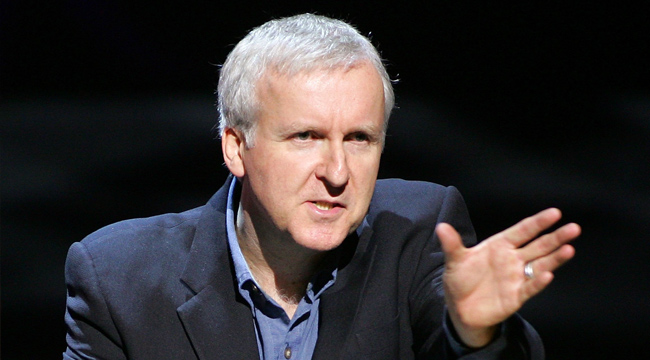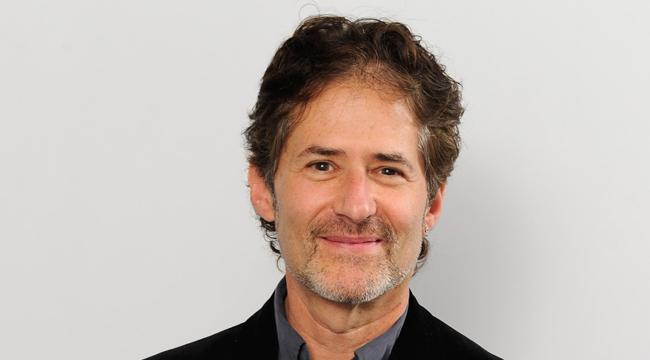It’s been 30 years since director James Cameron did the unthinkable — taking a (then) 7-year-old sci-fi/horror movie and producing a sequel that exceeded everyone’s expectations — and some say Ridley Scott’s original installment. With only one film to his name at the time, 1984’s The Terminator, Cameron proved himself a blockbuster director when Aliens hit the theaters in July 1986. While 1979’s Alien used its deliberate pacing to slowly build up tension, Aliens rushed full-on into the action, proving that movies could build upon their world and switch genres while doing so. While the franchise would go on to inspire more sequels, prequels, spin-offs and crossovers through today, here are a few facts behind the movie Aliens in celebration of its 30th anniversary.
Getting Sigourney Weaver Took Some Convincing
Alien protagonist Sigourney Weaver wasn’t all that thrilled with the idea of returning to the franchise that made her a star. Her mind changed when she saw Cameron’s script, which was enough to secure Weaver’s interest in signing on for the sequel (though not without a few notes of her own). Before production could commence, there was another delay involving a dispute over her salary, which prompted the studio to ask Cameron to produce an ‘alternate’ Aliens script that didn’t include Ripley — which he flat-out refused to do. When Weaver’s agent learned about Cameron’s position, he used it as leverage to get Weaver a $1 million payday, the highest of any actress at the time.
That was a considerable raise from the $35,000 she was paid for the first Alien movie.
James Cameron Clashed With The Crew Constantly

Filmed at Pinewood Studios in England, most of the film’s crew had worked on the original Alien, and they viewed Cameron as an unproven director and a poor substitute for Ridley Scott. Cameron ended up firing both the director of photography and the assistant director for constantly undermining him, and the resulting animosity between the director and the crew was so overwhelming it nearly resulted in a mutiny. In the end, it was Gale Ann Hurd, Cameron’s producing partner and then-wife, who got the crew back to finish production.
In the film’s DVD commentary track both Bill Paxton and Michael Biehn talk about the crew, explaining how they would break at 10 and 2 for tea every day and how that clashed with Cameron’s style as a director. Biehn said they simply “weren’t used to working.”
The Actors Were Sent To Bootcamp
The actors who played the Marines were all sent to boot camp for two weeks before filming so they would develop a familiarity both with each other and with a militaristic way of thinking. Not all the actors were invited, though. Weaver, Lance Henrikson (who played the android Bishop), and Paul Reiser (who played the slimy executive Burke) would be seen as outsiders by the Marines, and weren’t included in the training.
There was one Marine who didn’t attend boot camp, however. Michael Biehn, who plays Corporal Hicks, was brought on board at the last minute after actor James Remar left the project just a few days into production. At the time, Remar’s departure was chocked up to the usual ‘creative differences,’ but it was revealed years later that he had been arrested for drug possession and was fired. Having played Kyle Reese in The Terminator, Biehn got a call at his home in the U.S. on a Friday and was on set in London the following Monday. There’s one scene in the film’s final cut featuring Remar as Hicks, though the camera was filming him from behind.
A Real-Life Hero
https://youtu.be/fUuhndeOuQI?t=15s
The Marine Sergeant played by Al Matthews was, in real life, the first black Marine to ascend to the rank of sergeant, receiving his promotion in the field during a tour in Vietnam. Twenty-seven years later, Matthews would reprise his role in the 2013 video game Aliens: Colonial Marines.
The Actress Who Played Newt Kept Ruining Takes On Purpose
During a pivotal sequence in the movie, then-child actress Carrie Henn, who played Newt, would purposefully ruin takes just so she could go down an enormous slide that was part of the set. To try and move things along, Cameron told Henn that if they managed to get the shot, he’d let her play on the slide as much as she wanted. Henn delivered her lines and Cameron delivered on his promise, even putting up a sign that read ‘Adults: 3 Pounds, Children: Free.’
The Movie’s Most Famous Line Is Improvised
Bring up Aliens in a room full of people, and you’re bound to have at least three of them shout out the words “Game over, man!” That iconic line was one of many improvised by actor Bill Paxton, who played Hudson. The scene where Bishop does the famous knife trick, grabbing Hudson’s hand and putting it under his was another last-minute addition, although this one was improvised by Henrikson.
The Editor Really Wanted To Keep His Job
The editor on Aliens, Ray Lovejoy, had a very specific style, and while it wasn’t exactly winning over Cameron, he was also having trouble keeping up with the workload. According to the documentary Superior Firepower: The Making of Aliens, Lovejoy knew his job was in danger, so he grabbed all the footage that had been shot for the film’s final battle sequence before locking himself in an editing room for an entire weekend. Lovejoy presented Cameron with a complete cut of the sequence the following Monday, and it was enough to convince Cameron to let Lovejoy stay on board.
The Main Set Was Reused
It’s not unusual for movie studios to recycle props, and the elaborate set inside the decommissioned Acton Power Plant that was used to house the Xenomorph queen showed up again in another popular 1980s film: repurposed to become Axis Chemicals in Tim Burton’s 1989 Batman movie. When Burton’s production went to the set, they found the queen’s nest still fully assembled inside.
The Music Got Done Right At The Buzzer

Composer James Horner had planned on a six-week window to write the score. Because the film was behind schedule, that window got cut in half, giving him only three weeks to write and record. This meant he had to write the music for the final battle sequence overnight and then record it with the London Symphony Orchestra on the last day the studio was available. The two parted ways after Aliens for a number of years, coming together 11 years later for Cameron’s 1997 historical epic Titanic, as well as 2009’s Avatar.
